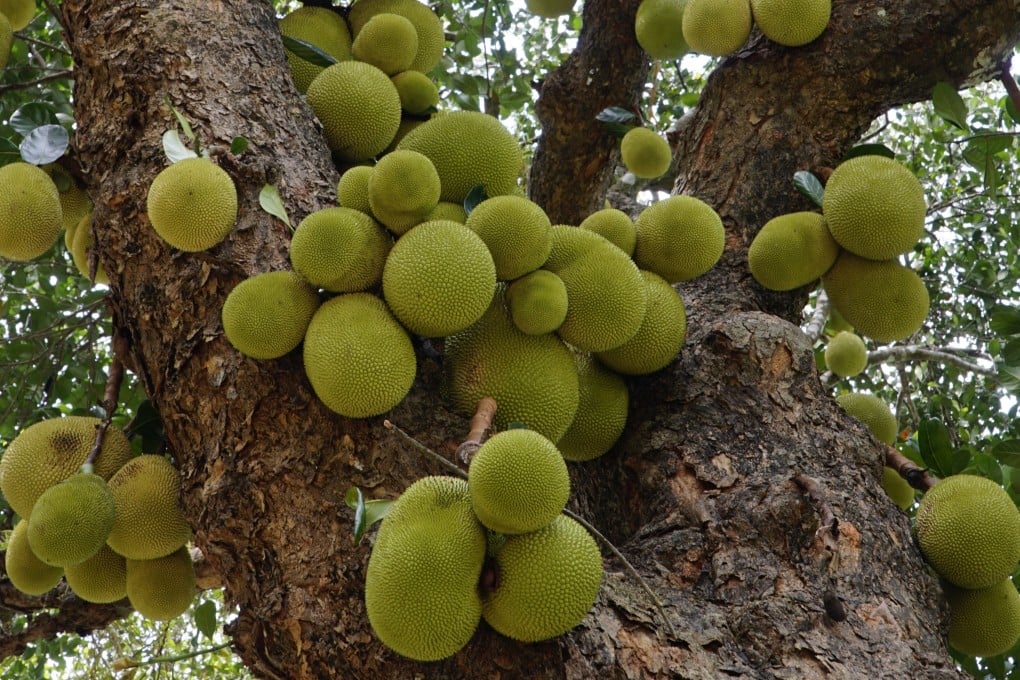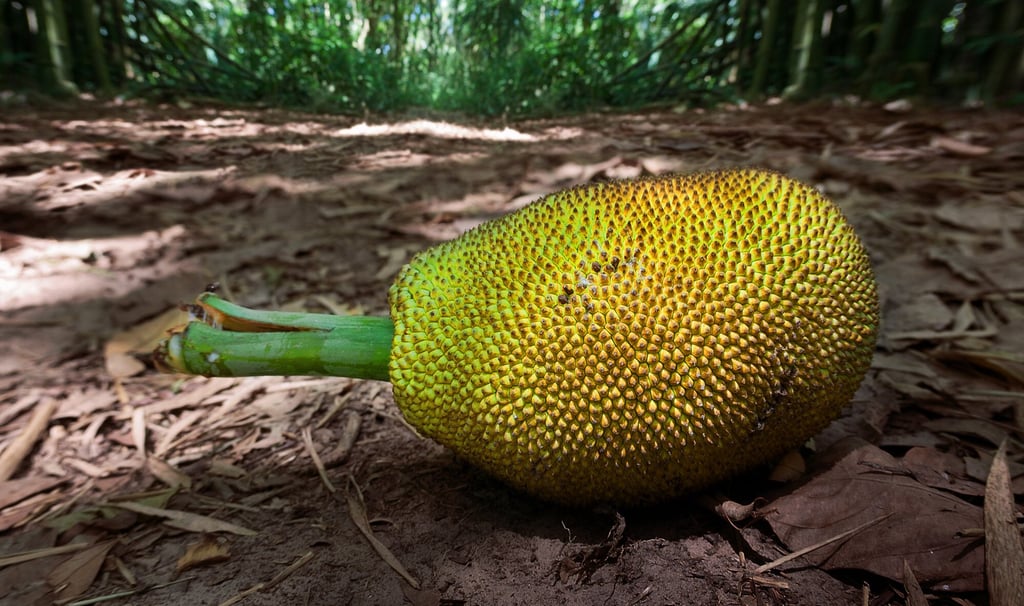Jackfruit – nutrient-packed food for the poor, or a nasty invader so big that when it falls from trees, it can knock cyclists off their bikes?
- The flesh of the invasive jackfruit is shunned by many Brazilians, but advocates say it is packed with nutrients and delicious
- Debate is raging over what to do after one of the giant fruits fell on a cyclist, knocking him down – kill the trees or harvest the fruit to feed the poor?

One morning in February, a cyclist chugged his way up the curves of Rio de Janeiro’s most popular sport cycling road. The familiar scent of jackfruit, vaguely cloying and ripe with peril, wafted through the air.
Without warning, a fruit plummeted from the heavily laden canopy of Tijuca National Park. It hit the cyclist on the head, cracking his helmet and sending him sprawling.
Jackfruit are abundant during the southern hemisphere summer, but many Brazilians are loath to eat their flesh. Historically, it has been consumed more by the poor or enslaved.
It’s considered an invasive species, even if it arrived in Brazil centuries ago. Ecologists disdain it for crowding out native species in Brazil’s Atlantic Forest – especially Tijuca park, one of the world’s largest urban forests.

Cyclists spread news of the jackfruit accident on message groups and Facebook, accusing the fruit of assault. One posted that he had skidded on jackfruit. Others shared close calls, such as a jackfruit exploding so close it splattered a bike’s spokes with shrapnel. Riding under jackfruit, another said, was like Russian roulette.